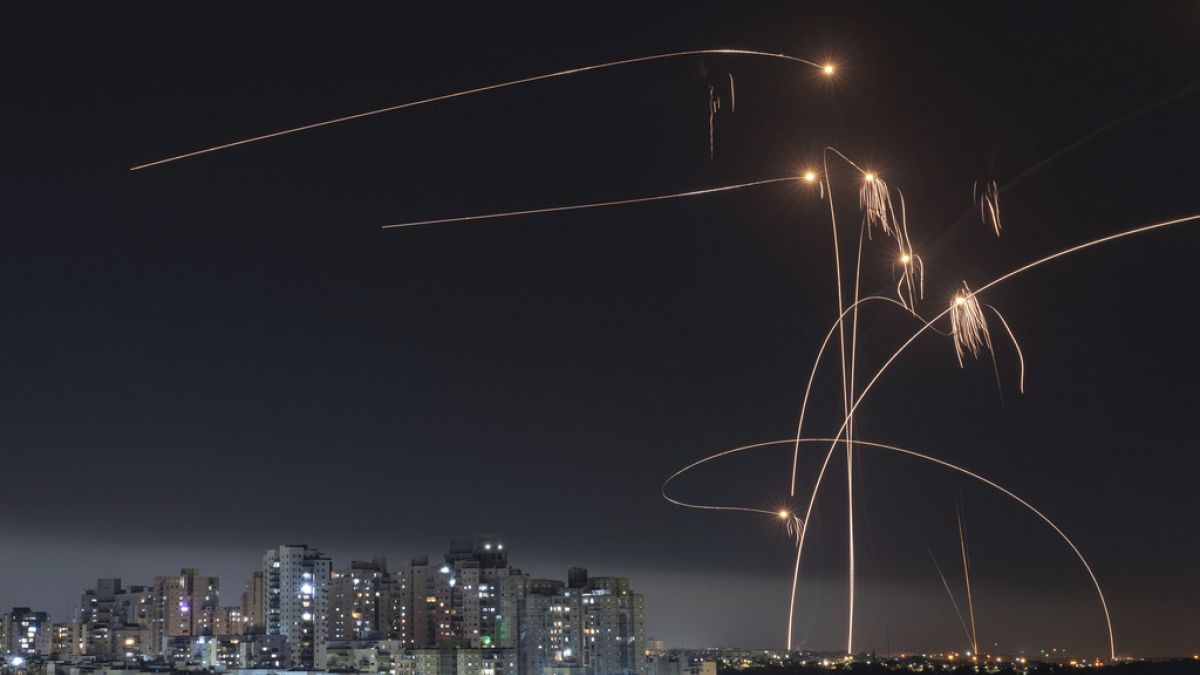Israeli Lieutenant General Herzi Halevi said Tehran's missile and drone attack “will be met with a response”, though he did not elaborate further.
Israel’s military chief said on Monday that Israel will retaliate to Iran’s weekend strike, but did not immediately elaborate when and how.
Lieutenant General Herzi Halevi said Israel is still considering its next steps.
But he assured the Iranian missile and drone attack “will be met with a response” during a visit to the Nevatim air base in southern Israel.
In a video message posted on the IDF's X account, Halevi thanked Israel's international partners, after the US, UK and France helped thwart Tehran's Saturday strikes.
He also praised the effectiveness of Israel's Iron Dome defence system, which the IDF claims intercepted 99% of Iran's missiles.
Halevi maintained that Iran would "face the consequences of its actions."
Prime Minister Benjamin Netanyahu has been huddling with top officials to discuss a possible response to Iran’s attack, involving more than 300 drones, ballistic missiles and cruise missiles.
World leaders encourage restraint
Leaders across the globe have urged Israel not to retaliate, meanwhile.
British Foreign Secretary David Cameron told the BBC on Monday the UK does not support a retaliatory strike by Israel.
French President Emmanuel Macron said Paris will try to “convince Israel that we must not respond by escalating.”
UN Secretary-General António Guterres called for “maximum restraint” and de-escalation in the region.
"We have a shared responsibility" to de-escalate tensions and work for peace, he said while opening the emergency session of the Security Council on Sunday.
“It's time to step back from the brink. It's vital to avoid any action that could lead to measured military confrontations on multiple fronts in the Middle East. Civilians are already bearing the brunt and paying the highest price. And we have a shared responsibility to actively engage all parties concerned to prevent further escalation.”
US President Joe Biden also does not want an escalation in the regional conflict or a “wider war” with Iran and is “working on the diplomatic side of this personally," the White House national security spokesman John Kirby told NBC News on Sunday.
"The president has been very clear. We don't seek a war with Iran. We are not looking for escalation here. We will continue to help Israel defend itself," he said.
US will not participate in retaliatory action
US officials said Biden told Israeli Prime Minister Netanyahu that Washington would not participate in any offensive action against Iran.
The president made “very clear” to Netanyahu “that we do have to think carefully and strategically” about risks of escalation.
The push to encourage Israel to show restraint mirrored ongoing US efforts to curtail Israel’s war against Hamas in Gaza, which is now in its seventh month.
Washington also wants Israel to do more to protect civilian lives in the Palestinian enclave.
